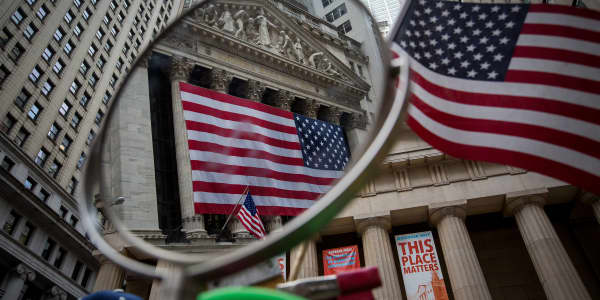Typically, when companies plan international expansions, they look for target markets that are healthy and stable. In late 2012, when we opened Endeavor's first European office in Athens, the Greek economy was everything but. "Why, in God's name, if you were going to start doing business in Europe, would you start by doing business in Greece?" Andrew Ross Sorkin asked me on CNBC's Squawk Box.
My answer: When economies turn down, entrepreneurs turn up. Endeavor—an organization I co-founded 16 years ago to support high-impact entrepreneurs worldwide—is built on the premise that entrepreneurship thrives in adverse circumstances. To date we've screened 37,000 candidates from cities like Beirut and Bogotá. Over the past year alone, the 844 entrepreneurs in our network have endured a downturn in Brazil, regime change in Egypt, social unrest in Turkey, and, of course, a debt crisis in the Eurozone. Nonetheless, their companies collectively employed 225,000 people and generated some $6 billion in annual revenues.
Twelve months after my interview with Sorkin, I'm pleased to say Endeavor Greece is up and running. We've selected 10 high-growth entrepreneurs in industries that range from media to IT to food and beverage, and we have dozens more in the pipeline.
(Read more: Emerging entrepreneurial hot spots)
Their companies generally fit one of two categories. Some, like Hellas Direct, were created in order to capitalize on the opportunities afforded by a recessionary market. A direct-to-consumer insurance company founded by two former Goldman Sachs bankers, Hellas Direct competes on price against established insurance companies, making it an attractive option for penny-pinching Greek consumers.
Other companies, like Fereikos-Helix, an escargot-farming business based in Corinth, were made stronger by the economic downturn. At first, most of Fereikos's snail farmers were veterans of the cotton and tobacco industries looking to diversify their crops. But when the debt crisis struck and the economy tanked, Fereikos's ranks swelled with young, educated Greeks who had trouble finding jobs. The downturn also shrunk the Greek market for high-end products, pushing the company to look abroad for customers. Today roughly 70 percent of Fereikos's revenue comes from exports to such places as Spain and Italy.
Says Maria Vlachou, who co-founded the company in 2010 with her sister, Penny: "Every problem has a solution. You can think about the problem, or you can think about the solution. We decided it was better to think about the solution."
(Read more: Why high-impact entrepreneurship matters)
Adversity sparks innovation
Her attitude is emblematic of the way most of our entrepreneurs face crises. In 2009 we surveyed the entrepreneurs in our network to explore the effects of the Great Recession. Although nearly all of them said they felt the effects of the downturn, the majority remained optimistic about their ability to grow and hire talent. And not without reason: In 2009, as overall employment fell by more than 1 percent in the 19 countries Endeavor operates—including Argentina, Brazil, Egypt, Indonesia, Lebanon, Mexico and South Africa—employment at Endeavor companies grew by 16 percent. While GDP in those countries fell by 2.6 percent, revenue in Endeavor companies grew by 15 percent.
Why? It turns out that recessions present a number of opportunities to entrepreneurs. Downturns expose the fault lines in stagnant industries, making incumbents vulnerable to disruption. They also lead to layoffs and a stale job market, allowing entrepreneurial companies to poach experienced professionals who can help the business grow. And because entrepreneurs are accustomed to uncertainty, they are uniquely qualified to handle the unpredictable business environment that accompanies a recession.
None of this should be news to those of us in developed economies. A 2009 study by the concluded that 51 percent of Fortune 500 companies were founded during a recession or bear market, including Disney and Microsoft. For companies in the Inc. 500, an annual list of America's fastest-growing firms, that figure was 47 percent. Americans have grown attached to stability, yet many of the corporate behemoths that anchor our own economy were themselves formed during unstable spells.
(Read more: The world's hot start-ups)
Today, even with the worst of the Great Recession behind us, our business landscape remains far from stable. The "topple rate" of big firms, a measure of how often they lose their leadership position, has increased by 40 percent since 1965, according to a study by Deloitte. Along the same lines, an Innosight study found that a company inducted into the S&P 500 in the late 1950s could expect to spend 61 years on the list; by 2012 the average tenure lasted fewer than 20.
Too often this uncertainty makes companies guarded and conservative just as they should be searching for opportunities—seasoned talent up for hire; new markets waiting to be discovered. Entrepreneurs have long relied on their agility and creativity to thrive in chaos. Established companies would do well to take a page from their playbook.
—By Linda Rottenberg
Ms. Rottenberg is a lawyer and the co-founder and CEO of Endeavor, a nonprofit organization that pioneered the field of high-impact entrepreneurship.Follow her on Twitter @lindarottenberg.





